Australian College of Nursing - PICO Question and Search Strategy
VerifiedAdded on 2022/11/26
|5
|838
|359
Homework Assignment
AI Summary
This assignment, submitted by Satinderpal Kaur Kaler, presents a PICO question and search strategy focused on the use of music therapy to reduce agitation in elderly patients with dementia residing in nursing homes. The introduction highlights the prevalence of dementia and the challenges associated with managing behavioral symptoms like agitation, emphasizing the limitations of pharmacological interventions and the potential benefits of non-pharmacological approaches such as music therapy. The PICO question is: "In elderly residential/nursing home patients with dementia, does exposure to music therapy, in comparison with regular treatment, reduce agitation?" The assignment details the search strategy employed, including the use of Nursing Reference Centre Plus and Cochrane databases, the selection of journal articles, and the time frame and keywords used to ensure the inclusion of recent and relevant literature. The assignment concludes with a reference list of supporting literature.
1 out of 5
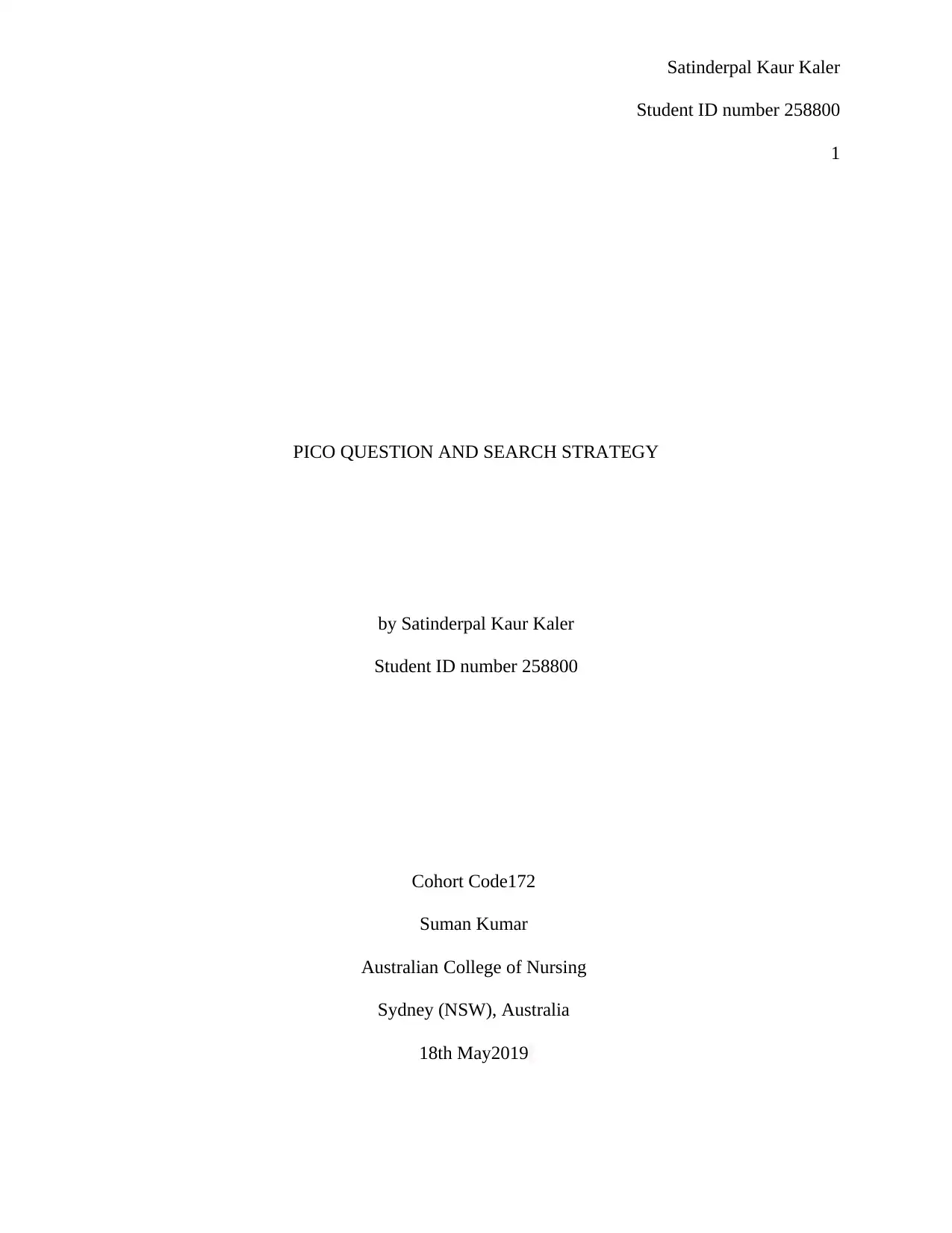
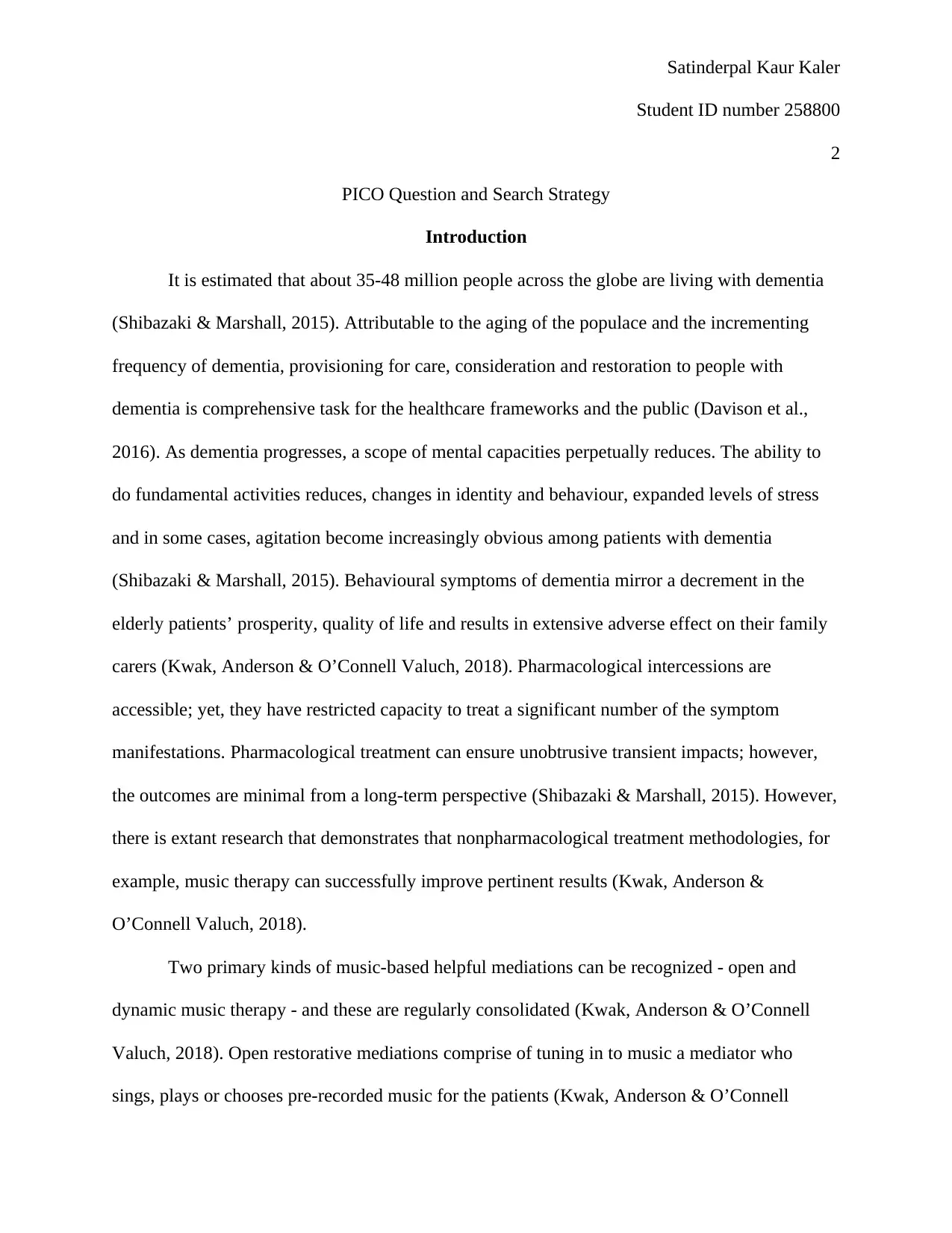
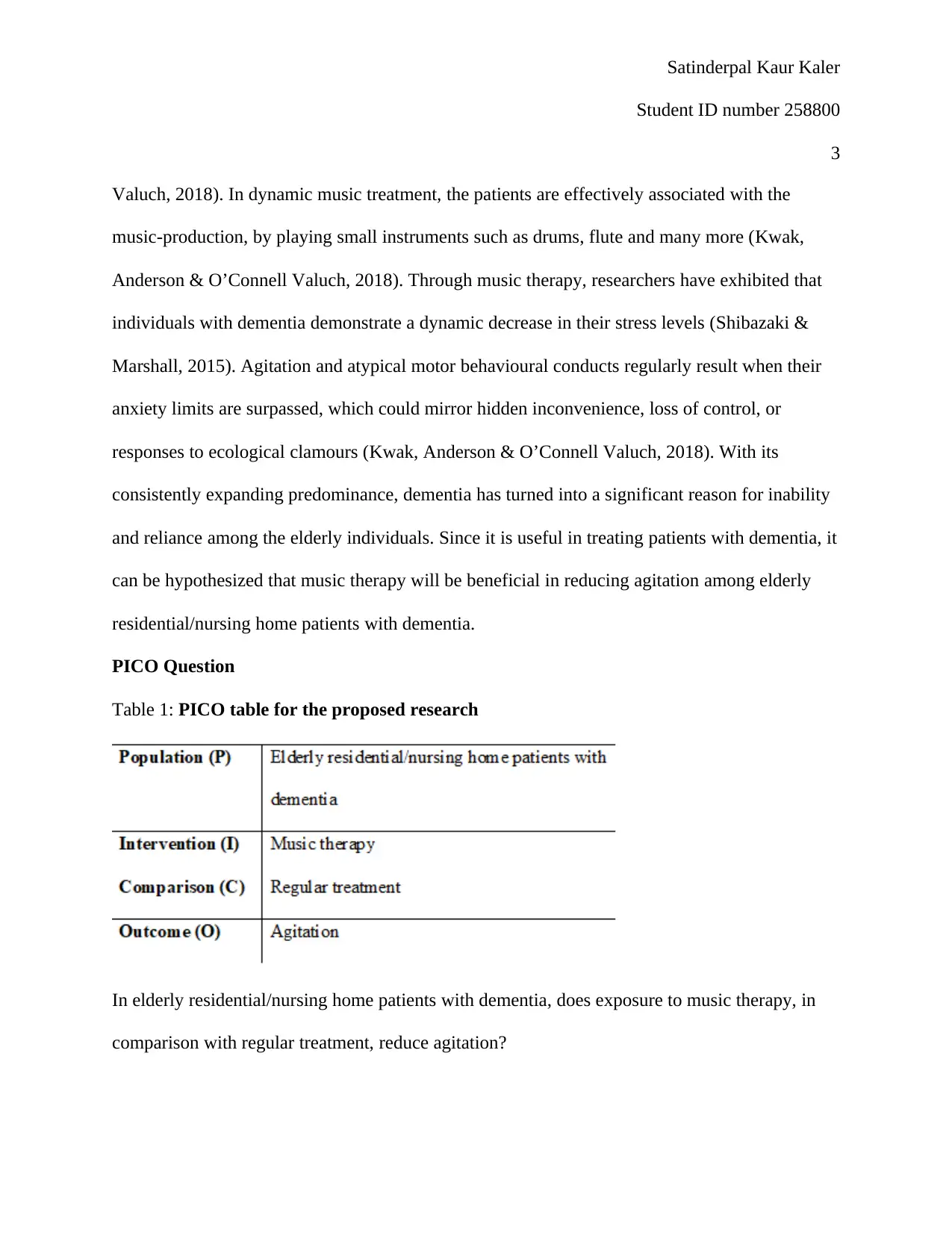

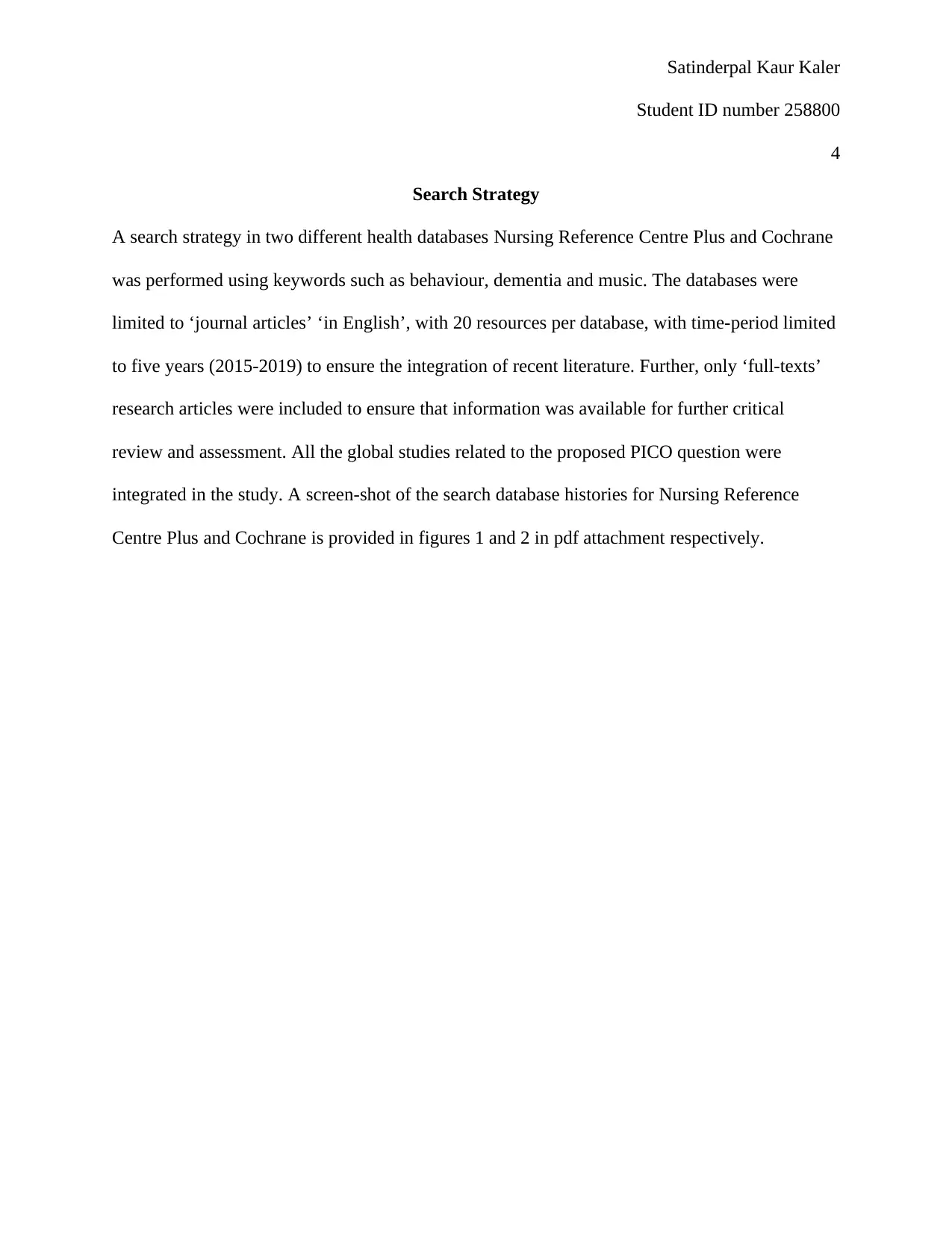
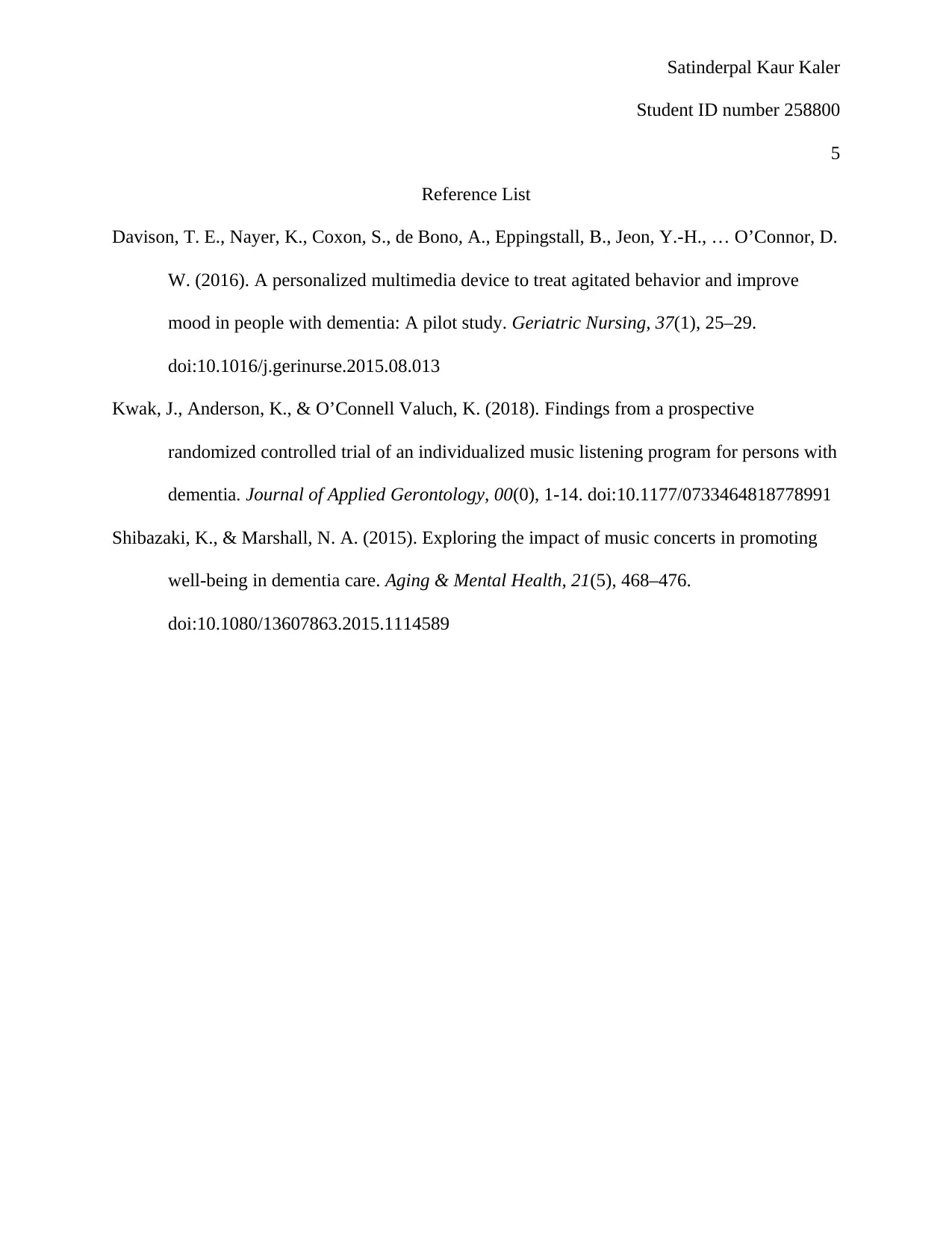

![[object Object]](/_next/static/media/star-bottom.7253800d.svg)